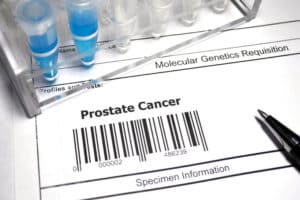Prostate Cancer FAQs
 September is prostate cancer awareness month, so we are engaging in this important health topic here by answering some common questions about prostate cancer screenings. As you may know, cancer screenings have been praised for their ability to detect cancer early, during stages that are more responsive to conservative treatments. What you may not know is whether or not it is time for you to start your screening process, what to expect, and more. We’ll cover what we can here and invite you to contact us directly to either schedule your appointment or ask other questions that you have. We’re here to help!
September is prostate cancer awareness month, so we are engaging in this important health topic here by answering some common questions about prostate cancer screenings. As you may know, cancer screenings have been praised for their ability to detect cancer early, during stages that are more responsive to conservative treatments. What you may not know is whether or not it is time for you to start your screening process, what to expect, and more. We’ll cover what we can here and invite you to contact us directly to either schedule your appointment or ask other questions that you have. We’re here to help!
When should I begin regular prostate screening exams?
Some patients falsely think that they may need a prostate exam when they experience unusual symptoms. Cancer screenings of all kinds, including screenings for prostate cancer, are best done when you do not have symptoms. Screenings are based on other factors, including age and family history. Generally, doctors advise men to begin their prostate cancer screenings at age 45. That said, they should begin earlier for men with known risk factors such as having a father, brother, or paternal uncle with the disease.
What can I expect during a prostate screening exam?
There are two parts to the prostate screening. One is a blood test that measures prostate-specific antigen, PSA. This is a protein that is produced in the prostate gland. Elevated levels could indicate cancer. The second aspect of the prostate screening is a digital rectal exam. This test allows the doctor to feel the prostate to detect abnormalities. Neither test is particularly uncomfortable, and both take only a minute or two. Men are encouraged to keep a record of their PSA levels so they can be compared from one screening to the next.
While PSA level is an important measure of risk, it is not a definitive indication of prostate cancer. Doctors do not use this test alone to diagnose prostate cancer. Elevated levels could be a result of inflammation, infection, or other origins. PSA may be influenced by certain medications, obesity, even exercise. So, while important to measure, the PSA measurement is only one aspect of a thorough prostate cancer screening.
Can I reduce my risk for prostate cancer?
More research is needed to better understand the preventative nature of lifestyle on prostate cancer. Some say that there is little data to draw from. However, the data that is available indicates that diet could play a role. Countries in which men consume more fish and less fat show lower prostate cancer numbers compared to countries in which the Western diet rules. If you are interested in following a prostate-healthy lifestyle, experts suggest eating less red meat and fats and increasing the intake of fresh fruits and vegetables.
UT Urology has multiple offices to serve you. Contact us today to schedule your prostate cancer screening at a Chattanooga facility near you.

